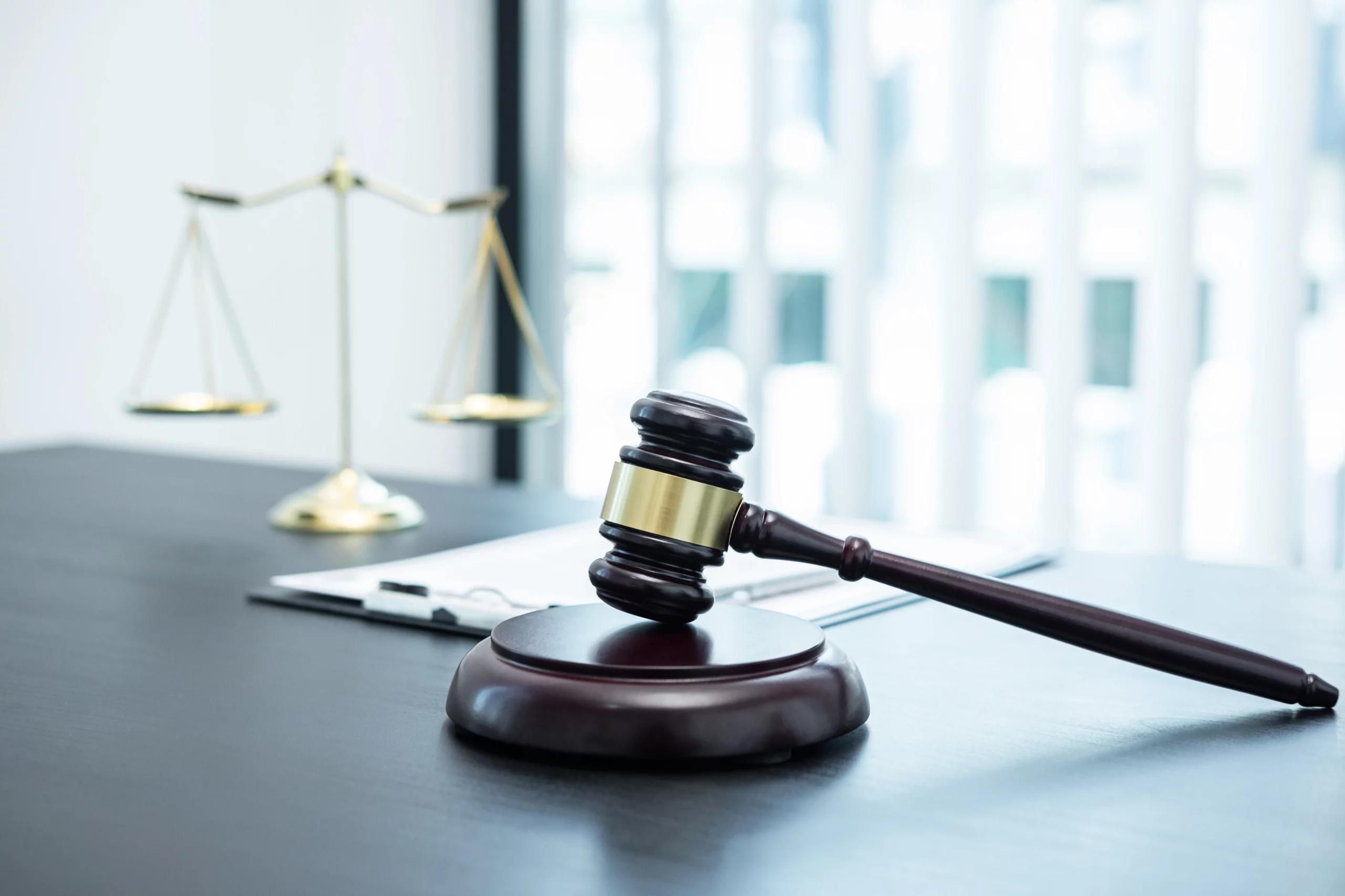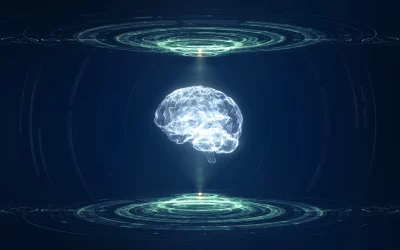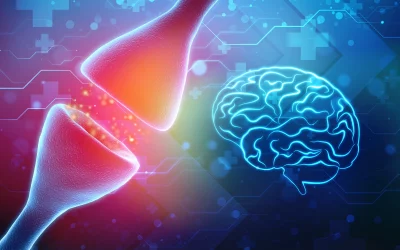Best Traumatic Brain Injury Attorneys in Colorado Springs
In this article, we take a look at the most common myths of traumatic brain injuries. Our personal injury attorneys specialize in traumatic brain injury cases and lawsuits. If you believe you may have suffered a head injury in a personal injury accident, always seek medical treatment.
When a person is involved in an car accident due to someone else’s negligence, visible injuries such as bruises, abrasions, and lacerations are common. Soft tissue injuries to the neck and back are also possible. The pain from these injuries is usually noticed right after the accident or shortly after that, allowing you to determine the source of your injuries and get medical treatment.
However, the most frequent damage that isn’t evident is known as a “minor traumatic brain injury,” or mild traumatic brain injury.
MYTH 1: TO SUFFER A BRAIN INJURY, YOU MUST LOSE CONSCIOUSNESS AND HIT YOUR HEAD
When most people think of a brain injury, they imagine the damage to the brain caused by a blow to the head that causes loss of consciousness. While a head injury is possible after such an occurrence, investigations have demonstrated that a closed head injury may occur without the victim losing consciousness or suffering from a direct hit to the head.
Trauma to the brain may occur following a flexion/extension or acceleration/deceleration type damage in a closed head injury.
Your brain is simply gelatin that is encased in your skull. On the inside, your skull is highly stiff and lined with bone protrusions.
An acceleration/deceleration injury, in which your head jerks forward and then backward in time, may cause your brain’s gelatin to flow forward and bounce off the bony protrusions lining your skull, then bounce backward, striking the opposite side of your skull. “Coup contra coup” is the term for this sort of injury.
While there may be no external forces causing trauma, the bouncing of your brain against your skull may cause damage. Post concussion syndrome is very common in these situations and a number of factors can trigger symptoms. This is why you must get proper treatment.
MYTH 2: IF AN MRI OR CT SCAN REVEALS NO ABNORMALITIES, THERE HASN’T BEEN ANY BRAIN DAMAGE.
Another common myth utilized by insurance companies when fighting against a claim of a mild traumatic brain injury is that if someone has brain damage, it will almost certainly show up on diagnostic tests. This assumption may be understandable given that we were in 2014, and image technology has evolved considerably in the last 20 years.
This wrong style of thinking, on the other hand, might be harmful if not addressed right away. Even if a patient’s tests are normal, he or she may nonetheless have cognitive impairment. This is because, despite their strength and sophistication, these tests may miss minuscule damage to your brain’s axons and neurons.
MYTH 3: BECAUSE TESTING IS SUBJECTIVE, A PATIENT RECEIVING A NEUROPSYCHOLOGICAL EVALUATION MIGHT INFLUENCE THE OUTCOMES
A neuropsychological examination may be performed to determine whether or not someone has suffered brain damage. This sort of examination employs a battery of tests to assess a patient’s cognitive, motor, and perceptual abilities in a sensitive manner to identify a disturbance in brain function.
A neuropsychological evaluation will typically include tests to assess one’s attention and concentration, learning and memory, reasoning and problem- solving abilities, visual-spatial functions, language and speaking ability, sensory-perceptual and motor functions, academic skills, and emotional functioning.
This sort of examination is performed in a question and response style rather than being subjected to a machine or other physically intrusive techniques.
Insurance companies often claim that the test is “subjective.” They should not be deemed an “objective” medical finding due to the subjective nature of the exam and the requirement for patients to put forth their “best efforts” to acquire appropriate tests results.
In the past, however, the medical literature has amply refuted this. A neuropsychological test today comprises complete objective measures and may help identify subtle changes in brain function that are not discovered in diagnostic investigations, according to the medical community.
MYTH 4: IF YOU HAVE AN MTBI, YOU WILL RECOVER RAPIDLY
Defense lawyers and insurance companies often attempt to minimize the severity of damage sustained by persons who have suffered a mild traumatic brain injury by claiming that any long-term consequences would go away fast. While memory, attention, headaches, and tiredness may improve within a year after the damage, some people continue to have difficulties and need further therapy.
Furthermore, certain MTBI symptoms may not appear quickly and are mild, such as a small loss of smell, mood changes, or sensitivity to light and sound. Some symptoms and consequences may endure longer than others, and each person is unique.
However, what does not change is how defense law firm will often attempt to minimize your injuries and the exact degree of your losses.
MYTH #5: A CONCUSSION ISN’T A LIFE-THREATENING INJURY
A minor traumatic brain injury is known as a concussion (TBI). A concussion is more than simply a knock on the head; it’s brain damage that needs medical treatment. Sustaining a hit to the head (even if it seems to be minor) should never be taken lightly.
Concussions are classified as a sort of “mild” brain damage since they are seldom fatal. It’s crucial to remember, though, that any brain damage may be fatal. Most individuals recover completely from a concussion within two weeks, but some patients may have symptoms for the rest of their lives.
MYTH #6: A CONCUSSION VICTIM SHOULD BE WOKEN EVERY HOUR FOR THE FIRST 24 HOURS AFTER THE ACCIDENT
Sleep is crucial for brain injury healing, and keeping someone up for 24 hours after a concussion is unnecessary. To determine the severity of the damage, a medical examination is required. If a medical specialist determines that there is no brain hemorrhage or severe
trauma, the patient should sleep soundly to aid in their recovery.
MYTH #7: CONCUSSIONS ARE USUALLY TIED TO SPORTS; CONCUSSIONS ONLY HAPPEN TO ATHLETES
A concussion may happen to anybody. TBI, including concussion, may happen to anybody, at any time, and in any situation. Concussions may happen due to a variety of things,
including car accidents, falls, blast injuries, domestic violence, abuse, gunshot wounds, and other forms of physical stress.
MYTH #8: BRAIN INJURIES ARE ALL THE SAME
Each brain injury is distinct, as is the patient’s reaction. Knowing where the brain damage occurred may indicate the issues to anticipate, but each person’s route ahead will be unique. A medical examination is required to evaluate if the damage extends beyond the location of the accident.
MYTH #9: ALL SORTS OF BRAIN INJURIES CAN BE DETECTED WITH CT AND MRI SCANS
Acute trauma, such as skull fractures or brain bleeding, may be detected with CT and MRI images. Concussions and other brain injuries may not always show up on these scans.
Additional testing may be required if a clean CT or MRI scan does not rule out the potential of a brain injury.
MYTH #10: YOU SHOULD AVOID ANY STIMULUS THAT MAY PROVOKE SYMPTOMS UNTIL YOU HAVE FULLY HEALED FROM A BRAIN INJURY
To prevent any stimulation to the brain, it was formerly a conventional treatment to confine brain-injury patients in dark, silent rooms. According to current studies, this is not an efficient healing approach and may even aggravate symptoms.
Light movement shortly after a concussion, according to some specialists, may be helpful. Each patient is different.
Therefore you should always talk to your doctor about the optimal healing strategy.
MYTH #11: A PERSON’S FUNDAMENTAL EMOTIONAL NEEDS ARE ALTERED AS A RESULT OF BRAIN DAMAGE
Because of the brain lesion, primary emotional demands do not alter. Basic wants, such as the need to be loved, helpful, and respected, as well as the desire to have control over one’s own life, are universal for all individuals, regardless of injuries.
MYTH #12: ASSURING A BRAIN-INJURY SURVIVOR THAT LIFE WILL RETURN TO NORMAL IS USEFUL AND UPLIFTING
The result of a brain injury varies, and it’s often unhelpful to guarantee someone that their life will be precisely as it was before the accident. The specifics of the rehabilitation process may not be readily apparent at the time of the accident. It will almost certainly need more time to properly comprehend the gravity of the situation and the best course of action. Many people who have suffered a brain injury must adjust to a “new normal.”
MYTH #13: AFTER BRAIN DAMAGE, COMPLETE HEALING OCCURS WITHIN THE FIRST TWO YEARS. THERE IS NO WAY TO RECOVER FURTHER AFTER THAT
Even many years after an accident, more healing is often feasible. While the first nine months of recovery are important in identifying the long-term consequences of a brain injury, the treatment utilized is the strongest predictor of recovery. Working with your doctor to discover the most effective treatment choices for your unique symptoms is critical.
MYTH #14: SUICIDE THOUGHTS ARE UNCOMMON AMONG BRAIN DAMAGE SUFFERERS
Patients with brain injuries have a greater risk of suicide than the overall population. Over 20% of brain injury survivors have suicidal thoughts or may attempt suicide during the first five years following a brain injury.
Following a brain injury, changes in the brain and, in general, lifestyle may raise the risk of suicide. Families and healthcare professionals must discuss this risk with brain-injury patients openly. These are uncomfortable discussions, yet they might save someone’s life. Call the suicide hotline at 1 (800) 273-8255 for assistance and further information.
To discover more about your legal options, speak with a Colorado Springs brain injury lawyer.
If you’ve been hurt due to someone else’s carelessness, you need to talk to lawyers who know how insurance companies and their paid lawyers will try to fight your claim. The apparent injuries of a small traumatic brain injury are often not as noticeable as a cut, scrape, or bruise.
As a result, you must retain the services of an attorney who can utilize your medical records to clearly explain the magnitude of your losses to the insurance company and defense law firm.
WARRIOR CAR ACCIDENT LAWYERS, HAS EXTENSIVE EXPERIENCE WITH BRAIN INJURY CASES AND HOW TO HELP YOU THROUGH EVERY STEP OF THE PROCESS. GET A FREE CONSULTATION TODAY.
Warrior Car Accident Lawyers
1902 W. Colorado Ave., Suite 100
Colorado Springs, CO 80904












